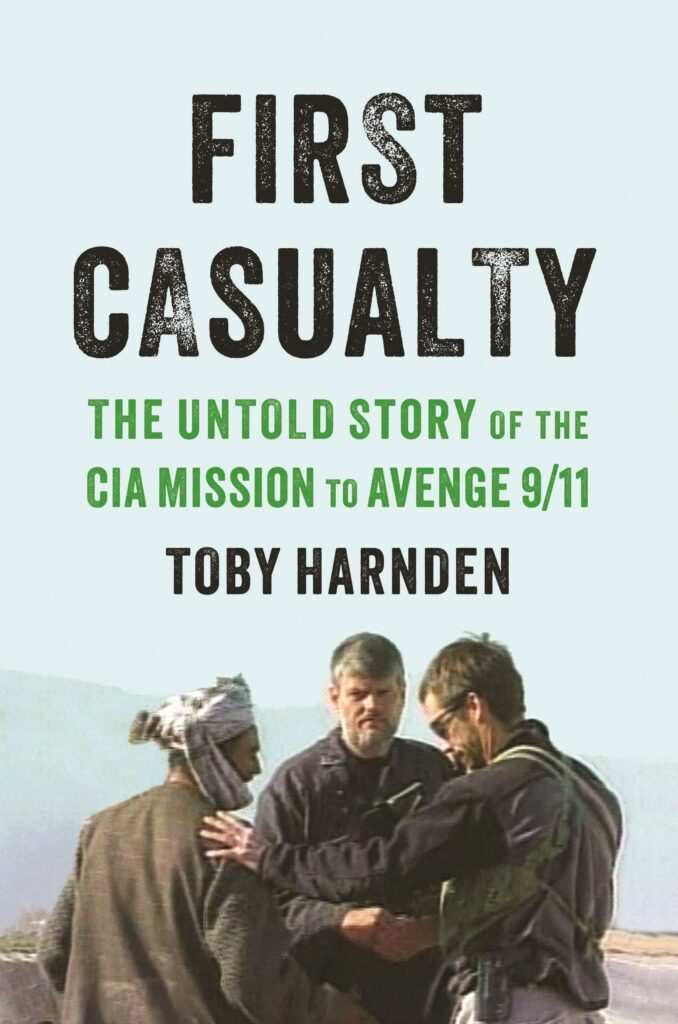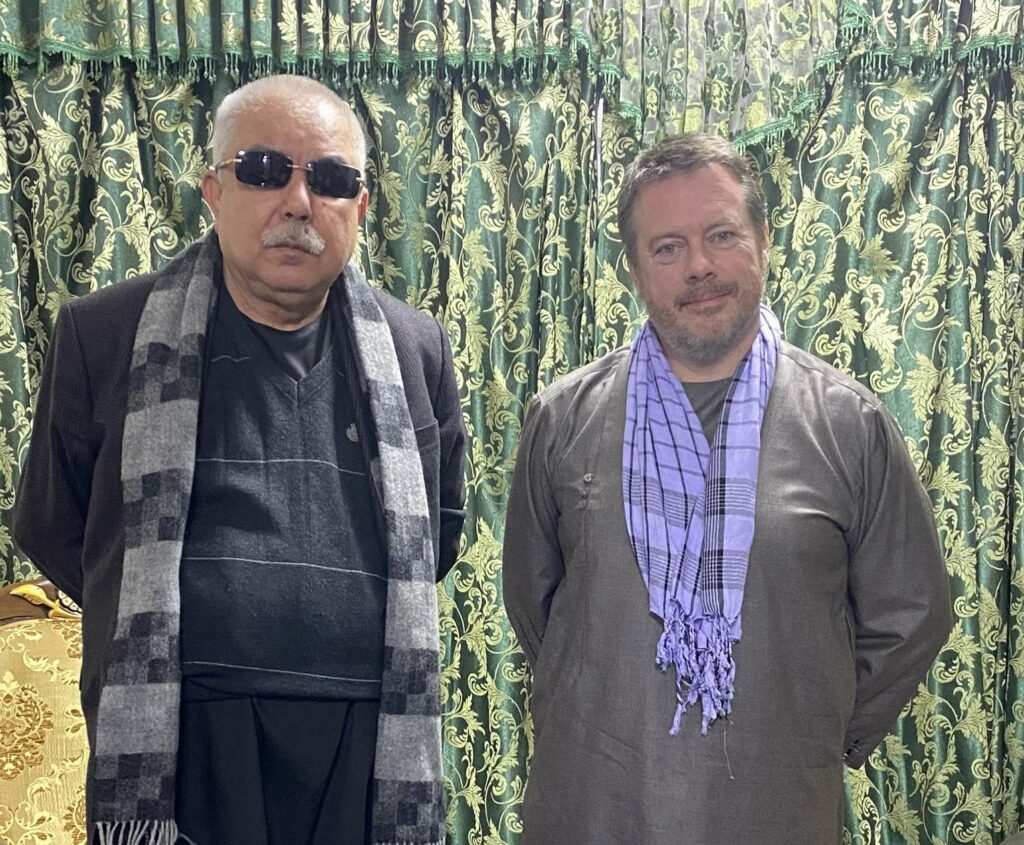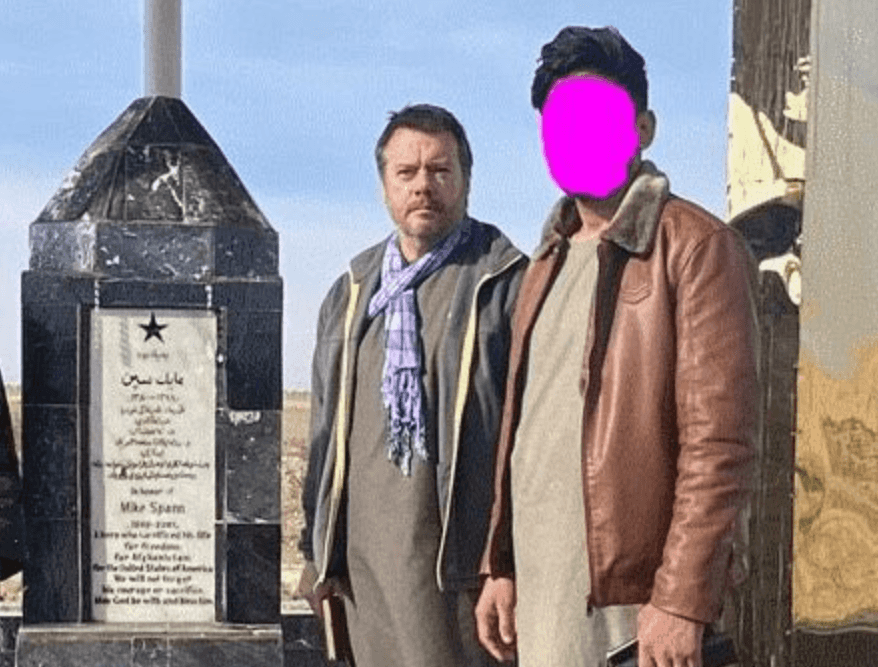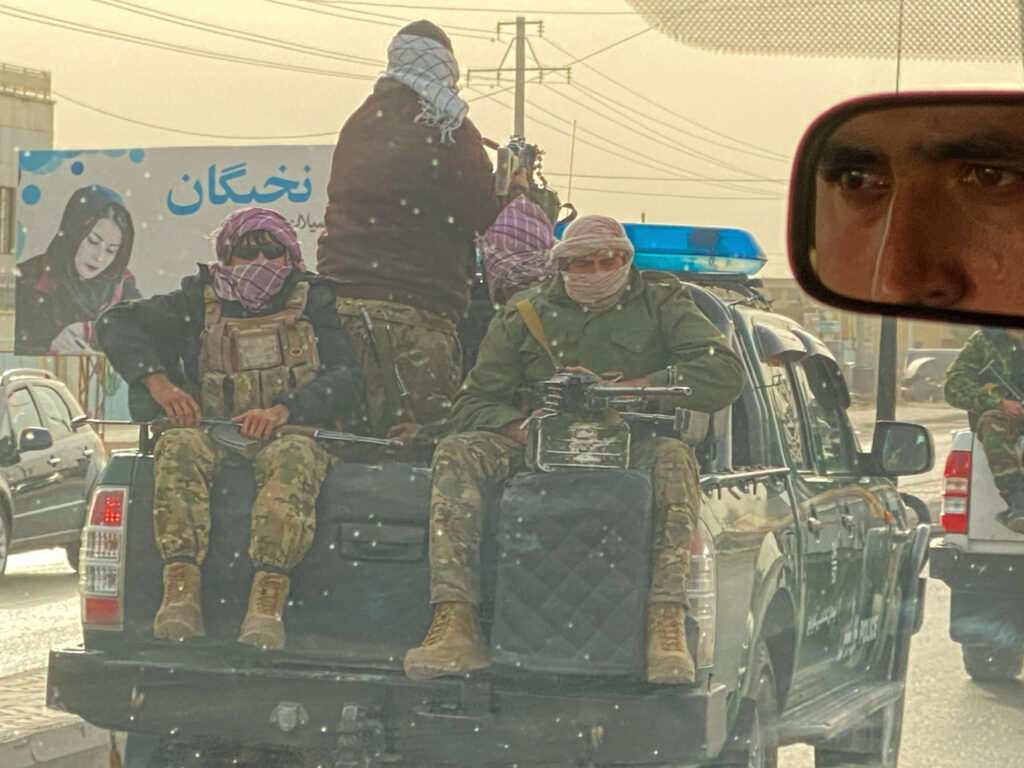On Oct. 17, 2001, a team of eight CIA operatives dubbed “Team Alpha” dropped into the mountains of northern Afghanistan, bringing an eclectic set of skills to the mission at hand: avenging the attacks just weeks earlier on Sept. 11, 2001.
The true story of Team Alpha, led by CIA agent Mike Spann, is told through the accounts of the team’s surviving members in the new book “First Casualty: The Untold Story of the CIA Mission to Avenge 9/11” by journalist and author Toby Harnden. Harnden pieced together the story through interviews with the people who were there, and through access to CIA records. The book, published by Little, Brown and Company is out now.

In an interview with American Military News, Harnden said one of the focuses of his book “was just how fired up and determined” the members of Team Alpha were to go into Afghanistan. “They agitated to get on the team.”
The story of Team Alpha ties in closely with that of the Green Beret “horse soldiers” who joined with the warlord Abdul Rashid Dostum and his Northern Alliance forces against the Taliban and captured the key Afghan city of Mazar-i-Sharif in the early days of the war in Afghanistan. The CIA team, which rode with Northern Alliance forces, was tasked with gathering on-the-ground intelligence from some of the same prisoners who were trained by Osama Bin Laden’s Al Qaeda terrorists.

Some skeptics doubted whether Team Alpha would be able to successfully build an insurgency against the Taliban and even its team members worried whether Dostum would be an ally or enemy.
“On October the 17th, 2001, they were dropped into the unknown,” Harnden said. “They didn’t know whether Dostum was going to befriend them or whether he was going to shoot them.”
During Dostum’s advance through Taliban territory, hundreds of Taliban fighters surrendered, providing Spann and his team a chance at gathering crucial intelligence in the early days of the war.
Spann and teammate David Tyson accepted the risk of going to an early prison camp at Qala-i-Jangi. While they were at the prison camp, the prisoners staged a revolt. Spann was surrounded by prisoners and was able to draw his weapon and fire only one or two shots before he was overwhelmed and killed, becoming the first American to die in the war in Afghanistan. Tyson would go on to fight his way through the prison break and called in reinforcements to put down the prison break.
Harnden said it was a video of Tyson running through the prison camp during the prison break that inspired him to seek out the story. “I remembered seeing this footage of him running, clutching a pistol in his hand, and thinking, ‘wow, what’s that guy going through, what has he just seen.'”
Harnden described tracking Tyson down years after the battle at Qala-i-Jangi. Tyson was still in the CIA at the time and could not speak in great detail about what had happened. “Then early last year, he just emailed me and said ‘hey, you know I just retired. I’m ready to talk.'”
Over the ensuing months, Harnden began talking with Tyson, the CIA and others who worked closely with Team Alpha, including Dostum himself. From there he pieced together the story of the weeks leading up to Team Alpha’s insertion into Afghanistan and the eventual prison break at Qala-i-Jangi.
Harnden spoke to Dostum last November, in the final months of the 20-year U.S. mission in Afghanistan. From meeting the Afghan warlord, Harnden said he was primarily surprised that Dostum had survived through the years of fighting, escaping numerous assassination attempts and close calls on the battlefield. Dostum even showed Harnden a coat full of shrapnel holes from a suicide bomb blast.

“[Dostum] was just looking back on this period with just this sort of sense of pride in what happened, brotherhood with the Americans, but it was tinged with a lot of sadness about what had happened since,” Harnden said.
In the book, Dostum told Harnden he believes the course of the war in Afghanistan could have gone much differently. Dostum said, “If the Americans had listened to me, they would now have the upper hand on the battlefield and at the negotiation table.”
The last U.S. troops left Afghanistan two weeks ago, after nearly 20 years. In the final days of the U.S. military presence in Afghanistan, the Taliban overthrew the U.S.-backed government, took over the capital city of Kabul and returned to power. With the Taliban seizing control of Kabul, the U.S. and its allies scrambled to evacuate diplomatic personnel and civilians, including many of the Afghan allies who helped western forces over two decades of fighting.

Harnden was among many in the U.S. who went to work trying to help evacuate the very same Afghan translator who helped him during his visit to Afghanistan last year, including taking him to the fort where Spann was killed and tracking down two of the doctors who were there on the day of the prison break.
“I’ve just been trying to get [the translator] out,” Harnden said. “We still have a plan. We’re still working on it and interestingly a lot of the Team Alpha now and Shannon Spann — Mike Spann’s widow — are very active in helping Afghans get out.”

Reflecting on the last few weeks in Afghanistan, Harnden said the beginning of the U.S. mission in Afghanistan saw the ingenuity and bravery of Americans like those on the CIA’s Team Alpha. Harnden said much of that same attitude can still be seen in the efforts private groups are making to help Afghans escape the Taliban-controlled country.
“Even though I find some of what’s happening in Afghanistan now is depressing, it gives me some sort of optimism about this country and about Americans — when they need to — what they can do,” Harnden said.



